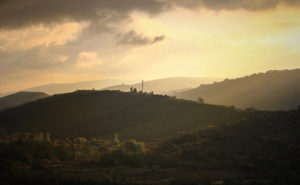You have no items in your cart. Want to get some nice things?
Go shopping Many picture August’s Middle East to be all dust, all aridness and inhospitality. They are wrong. It is valleys morphing into mountains; the textures of forests, chalk and sand. It is finding solace in shady patches or ensnaring the breeze on the back of a motorbike. It is admiring the vast landscapes that frame sun kissed breakfasts. It is sipping amber tea from glasses in the moonlit midnight.
Many picture August’s Middle East to be all dust, all aridness and inhospitality. They are wrong. It is valleys morphing into mountains; the textures of forests, chalk and sand. It is finding solace in shady patches or ensnaring the breeze on the back of a motorbike. It is admiring the vast landscapes that frame sun kissed breakfasts. It is sipping amber tea from glasses in the moonlit midnight.
Amal’s legs are folded neatly, her hands in her lap, her shoulders slumped forwards. She sits on a plastic chair on the land between her parents’ and sister’s houses. She is joined by her mother, father, uncle, uncle, cousin. Her family move unburdened and welcome between each-others’ houses. Each voice is as familiar to her as her own. Their conversation is background noise to her: the comfortable silences that ebb and meander into engaged village gossip and discussions of tomorrow’s plans. They laugh gently and frequently. The bubbling of the argileh, whose floating embers occasionally catch our girl’s attention, joins the babble.
She turns to look at the smoke, then toward her speaking father. She sips her glass-bottled Pepsi through a straw.
Lebanese summer seems and endless, but its composite moments are not. Amal sees every one of summer’s creations float away so quickly: smoke, voices, the sea’s crashing waves. They leave no imprint on her. They are too light. Here, all is beautiful, and all is lost.
Amal went to the mountains yesterday morning. She saw what it was like when the endless landscapes framed not breakfasts, but battlefields. The tunnels that they had built when they were hiding, when they were trying to kill and trying not to die. When they dug themselves into the land so that they could not be removed from it. She saw cemented floors embossed with tiny paw-prints and barbed wire, everywhere, everywhere. Those who liked bloodshed called it the victory of every being in the country. Amal imagined that many who loathed bloodshed called it the same.
The mountains were good places to hide in, good places to see the enemy from. But as she saw flags get lost in the fog that reached up to them, as she saw three villages from one spot, she did not think the mountains were strategic for military purposes alone. How can a person see their families’ homes bombed and not become something more than they previously were? How can a person see all that they knew torn apart, and not transform?
Mountains do not fade like moments. Nor do tunnels, cement, and the scars left on land.
Amal felt herself floating. A country that was all heaviness, all sacrifice and martyrs and monuments, had become the kind of beauty that touches everyone but changes no-one. Amal would give all that she had to prevent heaviness that abhorrent from returning to her people. She would choose drifting lost through time again and again if it meant that her father and mother, her forty-something number of cousins and her friends would be safe. She would spend lifetimes, eternity, light, if she had to.
Lebanon, like Algeria, like the Middle East and Mediterranean and every place blessed with the most natural of wonders, is open. From the top of a blood-soaked mountain or from her plastic chair, Amal can see her kin. She can see where she came from. She can see where she will go. Families perpetuate themselves endlessly. Each person in the society is knitted into a growing network; each person facilitates its growth. They add to it, nurture it, or die for it.
Amal always sees that truth. Amal always feels some heaviness, at the centre of everything. In the wonderful dying moments, her network are there. She watches over children playing in the ocean and thinks of her own potential children. She thinks of the endless cycle that she is a part of. And in the horror of war, her family were there, too. Amal floats, but there is something holding her down. There is weight to her life.
Tell me, reader, in your closed-off streets, in your after-school clubs and rock music and continental philosophy, can you be held down? Is there weight? Is it flowing in the blood of your country? Find it.

About Khazna Chami
Khazna is currently reading Human Sciences at Mansfield College, Oxford. Her work has previously been published by Oxford Writers' House. She endeavours to become the Willy Wonka of the Arts.




